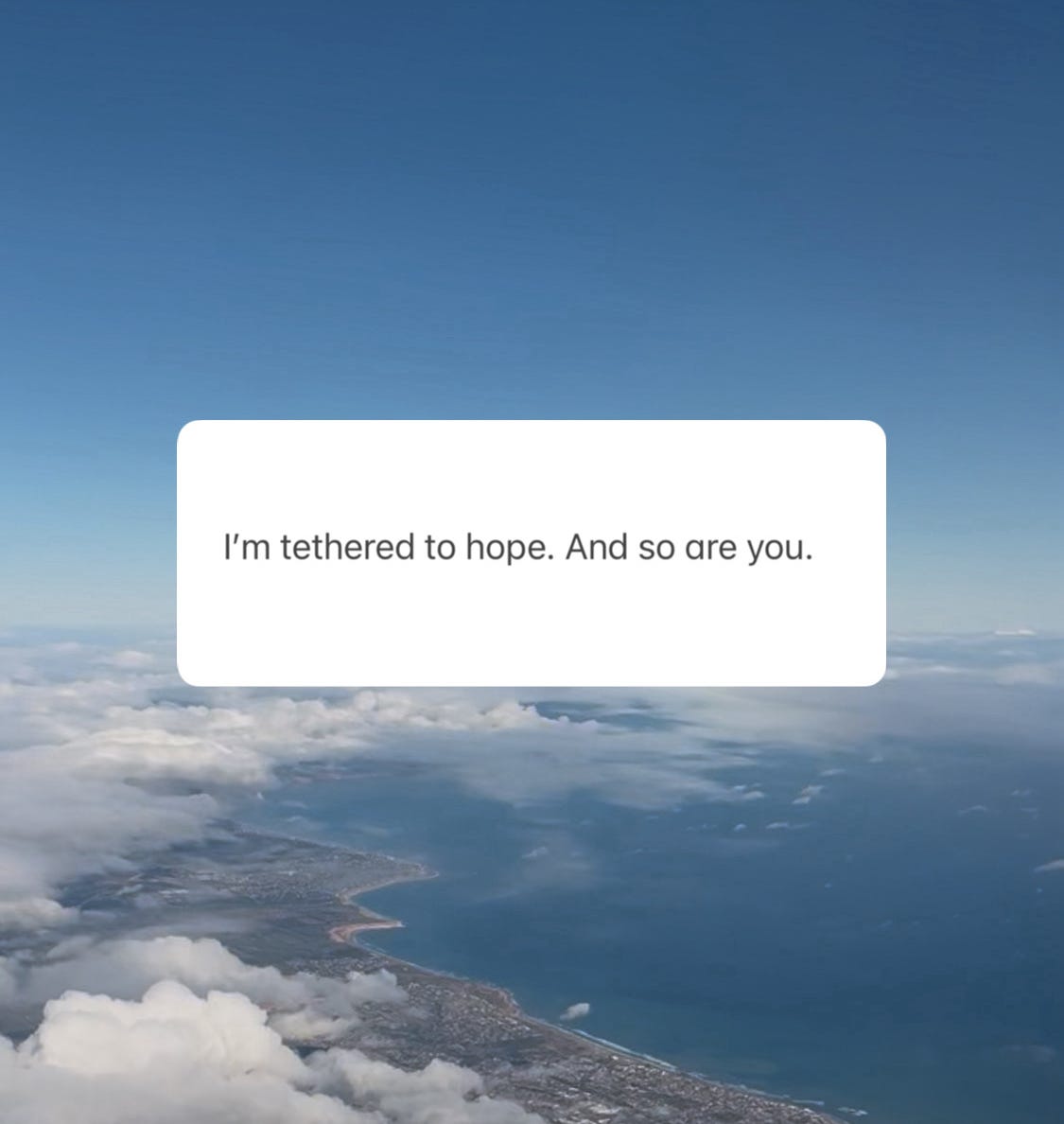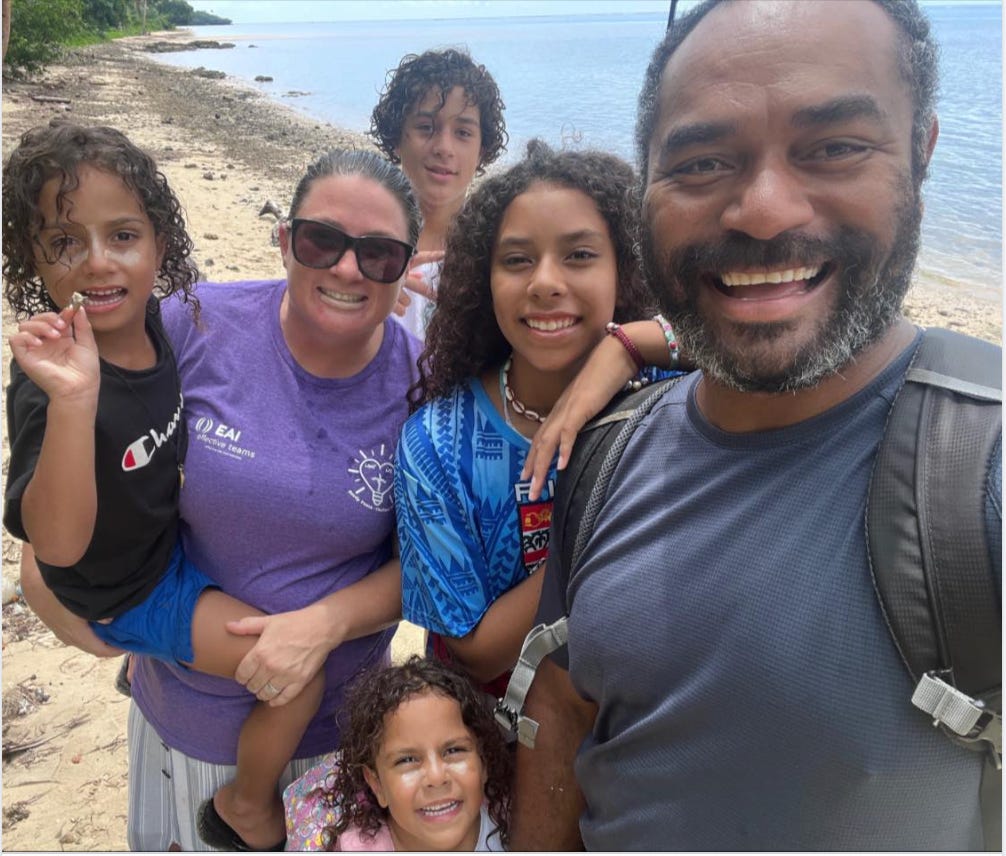The Horizon Outside My Window
It’s not a boundary to keep us safe, nor is it an indication of an endless earth. It's a signpost.
originally shared here 6/26/25
A few months ago close friends lost one of their sons. We were financially strapped, buried under work, and coming down with what we later realized was Covid. We simply could not manage to make it interstate to the funeral. It broke our hearts not to be there to support them or to participate together in person as they celebrated his precious life.
This week another dear friend lost his life without warning and could not be resuscitated. We are still strapped. We are still buried under work. But this time—with the last unattended funeral still weighing heavy on our hearts—we have moved everything we can to be there because no matter how hard it is, it pales in comparison to how hard it is for those left behind in the immediate wake of the crisis. We want to be near his closest loved ones so we can let our sorrow mix with theirs, and our memories spark joy along with theirs. All of it, a way to bear witness.
This is the fourth person dear to us who has died in the last few months. All of them in their early forties or younger with spouses and young children, parents and siblings, beloved colleagues and kindred friends who can hardly fathom the depth of sadness that results when life is cut so terribly short. Life is hard.
My next book, Tethered to Hope, is already typeset and in a few days the final tweaks and citations and tiny edits are due before it’s out of my hands completely, and I can’t help but to wonder if what I’ve written is “enough.” (Answer: It’s not and it also is. The paradox is the point.)
How do we grasp that our tether to hope remains firm even when we cannot perceive or feel it? Or when we’re too exhausted to hang on?
It’s a question I’ve asked and turned over and attempted to understand and answer for many years now as I’ve wrestled and written, deleted, given up, started over, stressed and sweat and cried and agonized over. I’ve had moments of leaning in, relaxing into, and feeling liberated by the message, only to then second guess myself and doubt God’s promises all over again—more of a roller coaster with blind corners than a merry-go-round that’s dizzying yet predictable. This is the nature of life in liminal spaces.
I guess what I’m saying here is that at the end of the day, when we’re in pain (and when we’re not) there’s a Tether whose strength and hold is not bound by our own perception or our strength or our ability to hang on. It’s there keeping us, connecting us, and protecting us from the abyss that can feel like our own bottomless sadness.
Even now as I begin my flight across the huge continent of Australia to join with people I love so much, I know the horizon outside my window is one we’ll never reach. It’s not a boundary to keep me safe, nor is it an indication of an endless earth. Instead it is there as a signpost reminding me (and you) that time and space always meet to offer a place to fix our eyes when things feel unsteady or confusing or elusive in the in-between. The horizon offers hope—seemingly fixed yet actually moving as we do—reminding us that there’s more just over the bend even when we can’t see beyond it.
I’m tethered to hope. And so are you.
Adriel
We love you Mena. Thank you for your years of friendship. Everyone who knew you loved you dearly. Moce vinaka.








